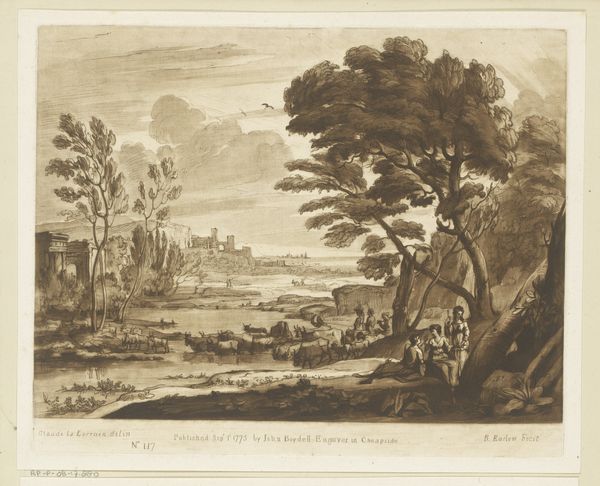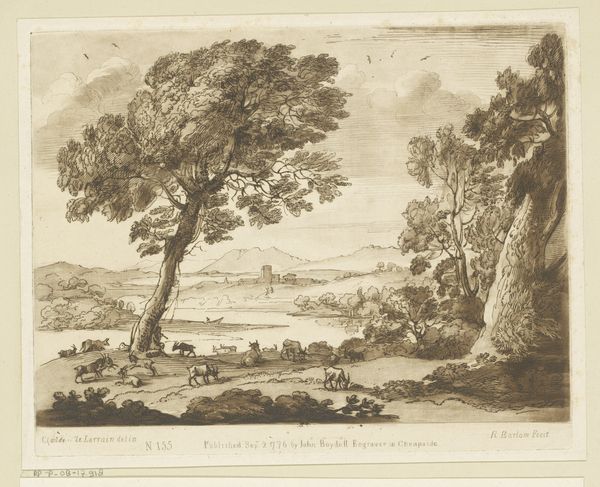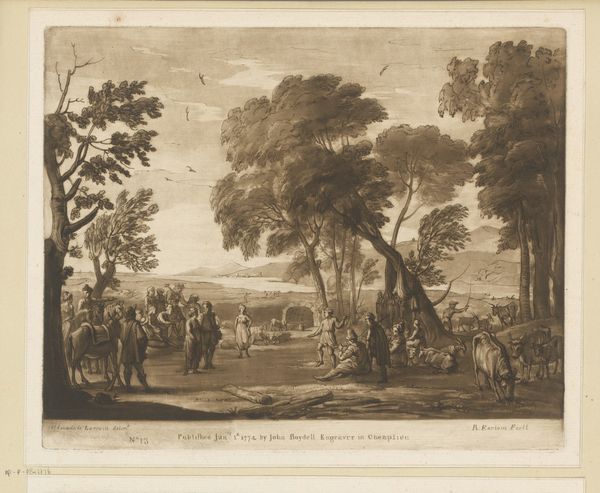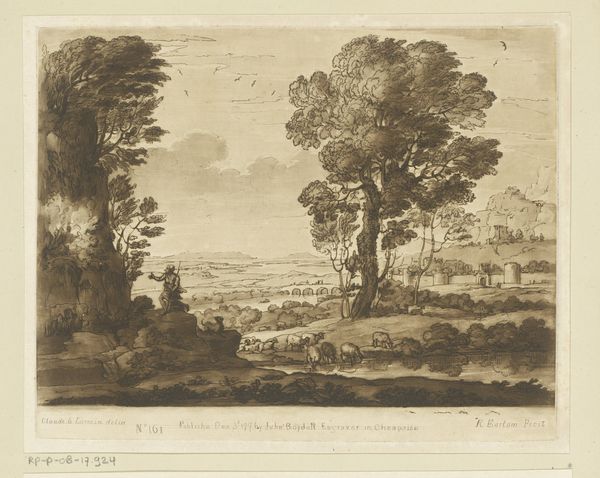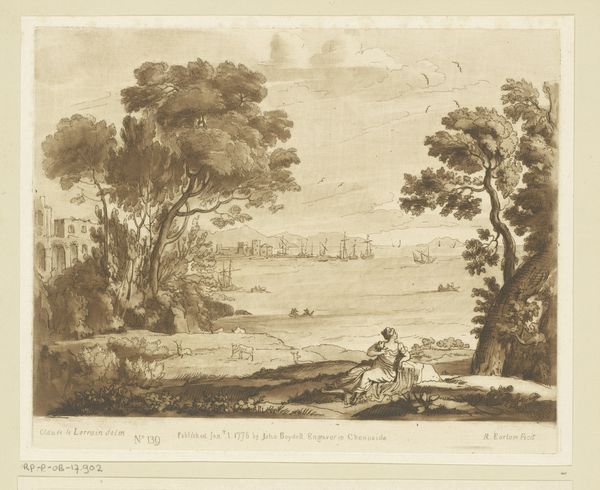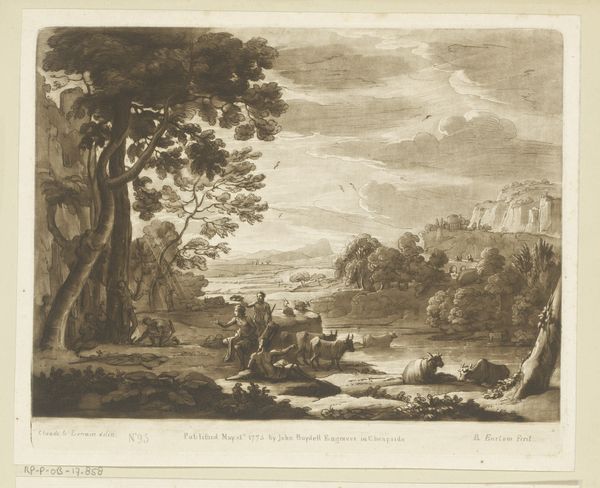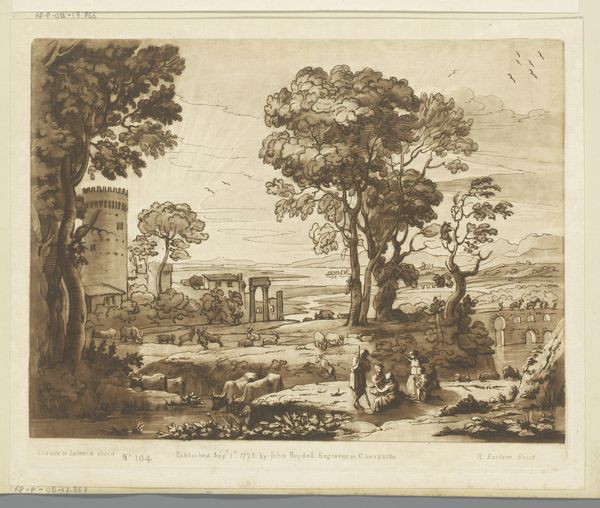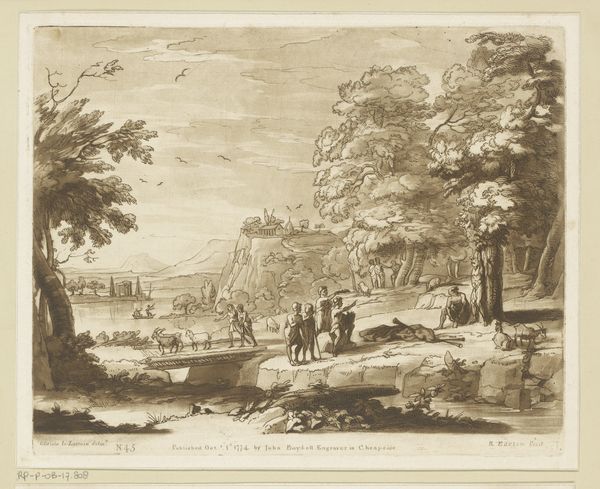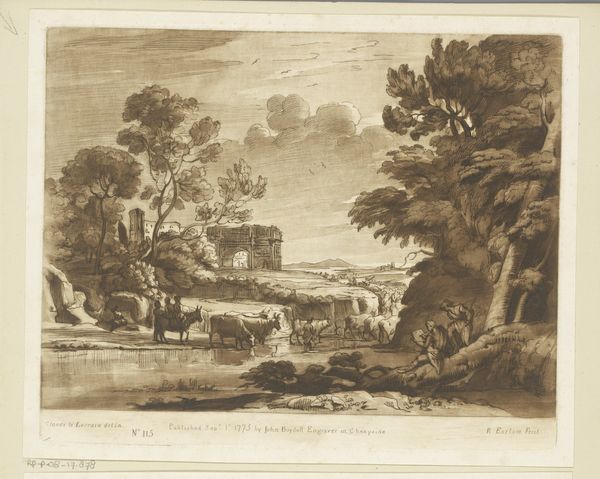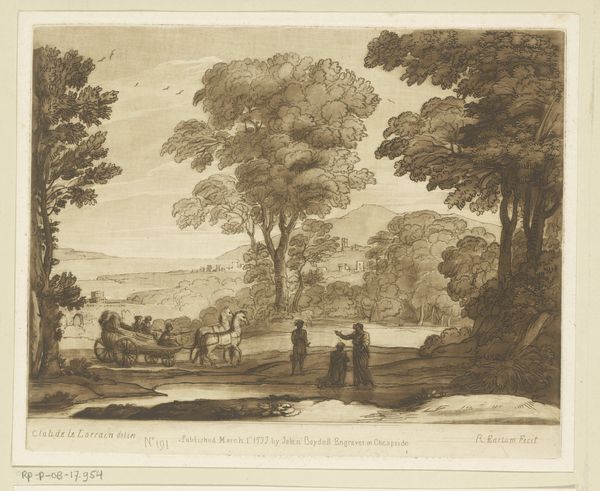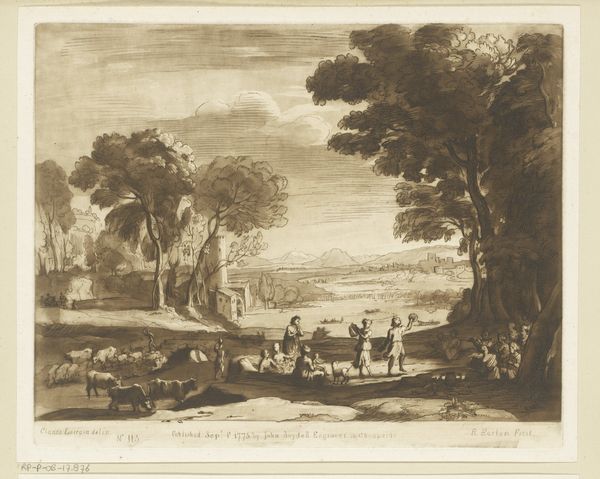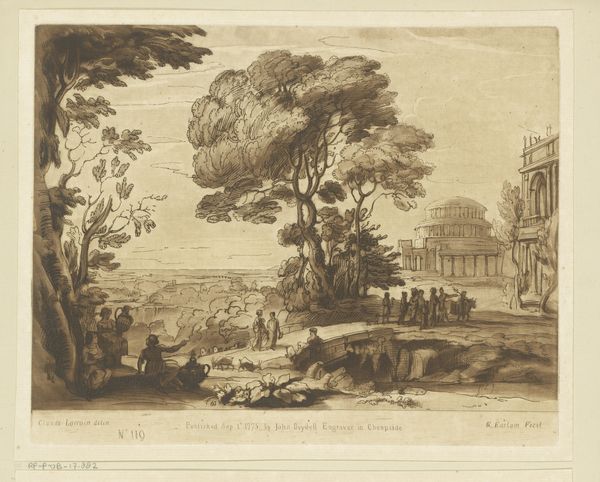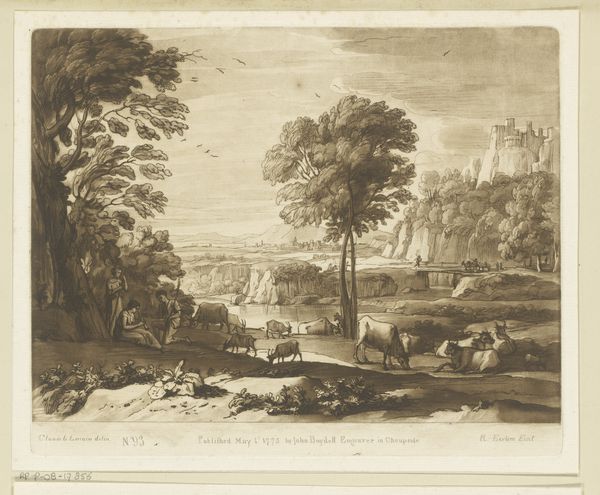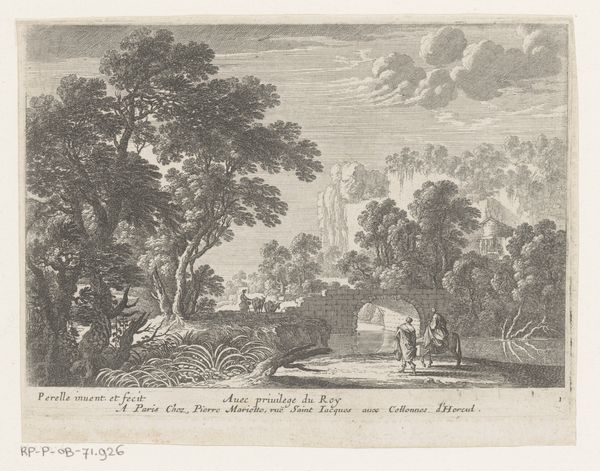
Landschap met fluitspelende herder onder boom en zes stuks vee Possibly 1774
0:00
0:00
richardearlom
Rijksmuseum
Dimensions: height 209 mm, width 258 mm
Copyright: Rijks Museum: Open Domain
Richard Earlom created this landscape with etching around 1774, populated by cattle and a shepherd. The shepherd plays his flute beneath a tree, a pastoral image harking back to Arcadia, the mythical place of rustic harmony. The figure of the shepherd, ever-present in art since antiquity, echoes through Virgil’s poetry and the canvases of Renaissance masters. He reappears in Poussin’s idealized landscapes, each time with a flute, symbolizing a longing for a simpler, more harmonious existence. This archetype taps into our collective memory, an enduring symbol of man's connection to nature. But the flute is not just an instrument; it is a signifier of leisure, of introspection, and of a life lived outside the demands of society. Its music is the voice of the idyll, a siren call to escape the complexities of modern life. This image speaks to a deep-seated desire for tranquility and a return to a primal state, echoing through time and culture, always calling us back to the pastoral dream.
Comments
No comments
Be the first to comment and join the conversation on the ultimate creative platform.
